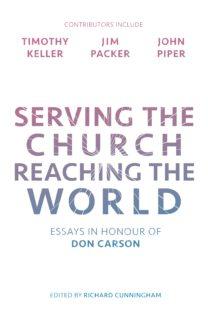A Brief Book Summary from Books At a Glance
by Steve West
Table of Contents
Foreword – Dick Lucas
Editor’s Introduction – Richard M. Cunningham
- Preaching that Changes the Church – David Jackman
- Preacher and Theologian: The Ideal Christian Communicator – J.I. Packer
- Is God the Only Theologian? ‘True but not Exhaustive’ – Michael J. Ovey
- The Priority of Truth – Jesus and Paul on Reason and Truth – Stefan Gustavsson
- Apologetics – Always Ready – Kirsten Birkett
- Gospel Cooperation Without Compromise – John Stevens
- The Silence of God – William Edgar
- Winning Hearts and Minds in a Secular Age – Richard M. Cunningham
- University Missions and Evangelism Today – Tim Keller and Michael Keller
- Doing Missions When Dying Is Gain – John Piper
Summary
Chapter 1: Preaching That Changes the Church
There have been numerous faddish ideas over the years about how to change the church. Far too often, there has been no clear definition of what the term “church” means. This chapter will be concerned with the church as the regenerate, redeemed company of believers in Christ who are indwelt by the Spirit and bow to Jesus as Lord. The church of Jesus Christ will never be destroyed: Jesus promised that nothing will prevail against him as he builds his church. Nevertheless, just as individual believers need ongoing healing, transformation, and growth, so does the church as a corporate whole. The church is called to be salt and light in the world, and it is through the church that God reaches the nations with his light. In order to authenticate the message of the gospel, those who bear it need to be growing in holiness and godly maturity, being transformed from one degree of glory to another.
God’s work is accomplished through his Word, so believers must live it out and proclaim it faithfully by the power of the Spirit. In the church, preaching must not be reduced to the techniques of communication—it is the content that is crucial. Rather than merely hear human opinions, the church needs to hear the very word of God. Since Scripture comes from the mouth of God, preaching should be expository and call people to both understanding and proper response. The length of text should be chosen carefully, and its context should be understood. It is the text itself that should set the agenda for the sermon. We need to understand why God gave a particular passage of Scripture, and then build bridges to contemporary application. Scripture is to be applied holistically to the whole person, and preachers should have confidence that it is just what every person at every stage of life needs. As churches grow in grace, the reality of God’s Word becomes more and more evident. It is this power in which preachers must exhibit full confidence. Churches need to always be reforming, and this work is done in conjunction with the preaching of the Word. . . .
[To continue reading this summary, please see below....]The remainder of this article is premium content. Become a member to continue reading.
Already have an account? Sign In
